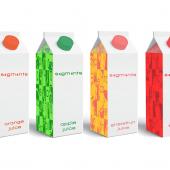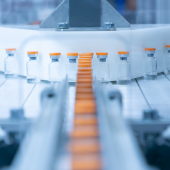When pharmaceutics goes green
The Chiesi Group, the pharmaceutical group and Benefit Corporation with over 6,000 employees and 2.4 billion euros of turnover, has for some years embarked on a path that unites sustainability and social innovation in order to drive change in a sector where attention towards green issues needs to be combined with compliance with severe regulations for the safety of consumers/patients.
M. Costanza Candi
SDGs underpinning the code of interdependence, which regulates relations with suppliers; being part of the B Corp world, which combines environmental sustainability with social innovation; the competitive selection of suppliers, and an ethical culture that leads the company to anticipate what the regulator has not yet provided for.
These are some of the voluntary initiatives that the Chiesi Group has been carrying out now for some years, with a commitment that aims at concrete objectives, particularly with regards to the reduction of emissions, and with impressive data, if we consider the investment of 350 million euros for the development of a new formulation for spray inhalers (pMDI) that will reduce the carbon footprint by 90%.
The data are disclosed with absolute transparency, making the carbon footprint public through the Carbon Disclosure Project, which includes direct and indirect emissions. In addition, before achieving net zero emissions of carbon dioxide by 2035 and in order to reinforce the measures in progress, in March 2021 Chiesi joined the B Corp Climate Collective (BCCC), signing up to “Race to Zero”, the United Nations Framework Convention on Climate Change (UNFCCC).
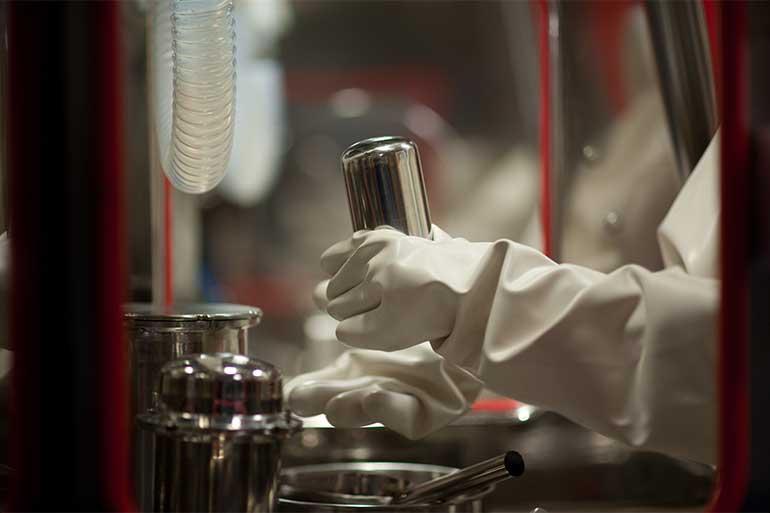
Two key figures in the process of adaptation to sustainability standards that Chiesi has embarked upon talk about these questions at ItaliaImballaggio; they are Anna Maria Cantarelli, head of corporate product industrialisation and Guido D’Agostino, head of global procurement, both responsible for production and organisational phases in which the choice of suppliers is crucial for accelerating the path taken by the company, working both on the final product and on the industrialisation process.
Thanks to the company’s selection policies, in fact, Chiesi’s partners are encouraged to make sustainable choices with supplier engagement policies that produce effects also on the business model of those who come into contact with the Parma giant’s ethical framework, remaining contaminated by it.
It should be underlined that where all the competent bodies such as EMA and AIFA have not yet provided indications on an issue which is still considered as of secondary importance compared to the safety of pharmaceuticals and patients, the fact of becoming part of the B Corp movement and the conviction of the unavoidable importance of sustainability guide the Group’s choices. Chiesi’s path anticipates what, hopefully, will be the pharma world in the future, attentive to the environment as an integral part of the concept of health.
Change starts from within

«I believe that Chiesi is a driver of innovation» begins Guido D’Agostino, global procurement manager. «All Chiesi Group departments have been subject, in fact, to sustainability-oriented organisational upheavals since 2018. We have set up a sustainable procurement department which deals with the engagement of suppliers: strong credentials and selection, approaching the question as a key element of present and future recruitment. We organise workshops, encouraging requests and proposals that we then assess with product development managers for application in the field. In tandem with the B Corp certification, we have also adopted a code of conduct – the Code of interdependence – which today forms the basis of our relations with suppliers.
We start from the SDGs (Sustainable Development Goals) in the document, to define the sustainable value chain, and we focus, in particular, on the containment of emissions with the objective of NetZero impact by 2035. Product and packaging play an essential role in the management of these objectives and the code is the entry threshold of Chiesi’s world. Our partners need, in fact, to have achieved a certain sustainability rating (ESG) and we refuse to work under a certain level unless we can see possibilities for the supplier’s improvement within 12 months. Since 2019, with Vendor Day and the Supplier Awards, moreover, we reward suppliers that have the most sustainable proposals, involving them in global challenges that have project programmes lasting up to 5-7 years».
A tool for assessing environmental impact
To this end, Chiesi has set up an initiative for assessing the sustainability of internal processes and products, using a tool for measuring the life cycle perspective, which takes account of objective and measurable indicators of the process and product – such as chemical synthesis, the production of materials, the energy used – to create a qualitative-quantitative matrix that makes it possible to identify the areas of strategic intervention to reduce the overall impact.
Pharmaceutical packaging, a transition protagonist

The contribution of Anna Maria Cantarelli, head of corporate product industrialisation, refers to this question.
«If high-impact materials, hard to recycle, very expensive or without green alternatives are used along the entire supply chain, areas for improvement are identified for taking concrete and, to some extent, compensatory, actions. We have identified every single packaging component in order to assess the use of recycled or green materials, without forgetting the process phases from which they are derived.
A device, for example, for inhalers we receive on PET trays can reduce the overall impact, applying a logic of reuse on the part of the supplier. We have also considered replacing the small drawers in plastic or polystyrene material inside cartons with paper or cardboard.
Virgin paper and plastic? Irreplaceable, but need to be managed.
«Focusing, in particular, on cartons - continues Cantarelli - we have worked hard on understanding whether it’s possible to have a percentage of recycled paper, but we have not yet found a solution due to machinability problems and meeting packaging quality requirements. The readability requirements of variable data and of information agreed with the regulatory authorities, in fact, are very strict: for now, there’s the alternative of printing on white cardboard».
«It’s very important to say - D’Agostino adds - that impact measurement is always necessary in order to assess the overall sustainability of a product. Recycling, for example, contributes more to the emissions of virgin cellulose. We therefore request our suppliers to use certified FSC paper linked to replanting processes, with regards to paper for photocopies or packaging (carton, label, information leaflet)».
The same assessment logic for the carbon footprint is obviously also applied to plastic, which is irreplaceable for the pharmaceutical market.
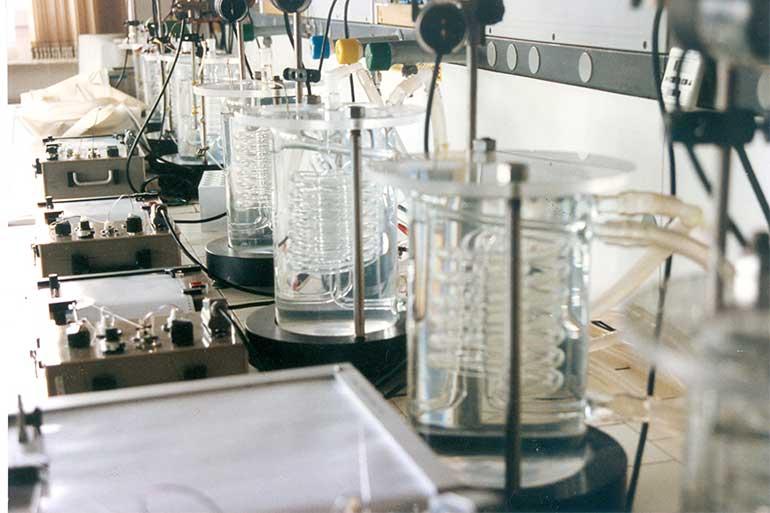
«We are also acting in the EFPIA (European Federation of Pharmaceutical Industries and Associations, Ed.) context to promote a European coordination of enterprises which identifies a shared disposal or recycling process for pharmaceutical materials, especially those in plastic. We are here referring to blister packs, sprays, which combines plastic and aluminium, or inhaling powders, distributed with multi-material devices. The objective is to set up “take back” and correct disposal programmes for these materials, considering also, where possible, the replacement of the plastic material most in use with a more sustainable product, recycled or deriving from sustainable processes».
It should be remembered, in fact, that, in contrast to other markets, any intervention on a pharmaceutical material imposes a series of complex passages that imply long tests on the product, followed by regulatory variations that must always be approved: we are not talking, therefore, of immediate actions.
«Among various initiatives, we are also evaluating the useability of bio-based or recycled materials» Cantarelli continues.
Dematerialising from a green point of view, creating an entire system.
One example taken as emblematic, is the introduction of the QR code put on the information leaflet, which leads to a significant saving of paper, dematerializing a part of the packaging.
«An EFPIA group is working precisely on this question - explains Cantarelli - to encourage the regulatory authorities to pursue a transition assessment process taking account of safety and considering elderly people who are not able to use a smartphone».

First ethics, then business
Driving Chiesi towards the virtuous development concept just described is not marketing, but the desire to follow a path consistent with being a B Corp and the awareness that patients can identify with these values, both today and in the future. It is a positive trend which sees the patient as co-protagonist, pushing the sector to make choices which are increasingly oriented in this direction.
«The pharmaceutical market is very particular» Cantarelli adds. «Prescription drugs cannot, in fact, be subject to marketing, and therefore there are various means for their promotion; an asthmatic patient, however, may also prefer an inhaler made with recycled material, or a packaging of limited weight, optimised to reduce emissions. Today Chiesi does not look at immediate profit, but at following its own ethical code as a B Corp, and we do all we can to push public opinion in this direction, considering that this can lead to a competitive advantage in the future».
Suppliers also play a part in this path as co-protagonists, adhering to a model and supporting Chiesi’s business approach.
«Our Product Challenges are based on a calculation of the impact of products in order to improve their sustainability right from the design phase» Cantarelli continues. «Sustainability, however, has a price; it reduces the number of suppliers and materials; it implies costs for every change. All these aspects are faced because the company believes in adopting this approach without expecting immediate economic return, which is a secondary factor in this phase. It is the company statute that guides us in the direction imposed by the B Corp concept, a group of companies that believe in sustainability as a founding value. We are convinced that in the future this could become one of the reasons to select a pharmaceutical company in tenders and supply contracts. Every drug is, in fact, registered and subject to price and reimbursement negotiation, in which sustainability could make a difference in the final choice».
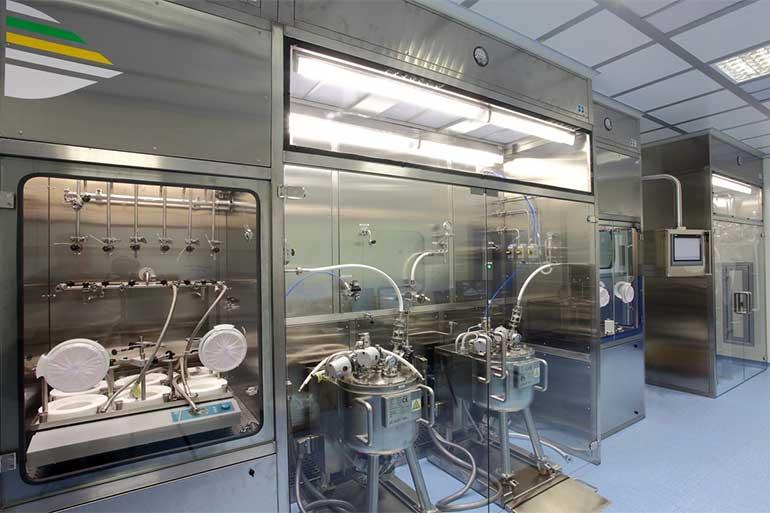
If “green” opens up new market prospects
D’Agostino adds on the same theme: «In tenders or the supply of certain types of hospital products, sustainability could even be decisive. It goes without saying that it is the regulator that has to establish the terms of this new important requirement, which we have already defined for selecting our suppliers.
This approach is already applied in north European countries: the B Corp certification and the engagement actions in sustainability allow us to be a preferred supplier for many buyers. The channels for increasing market share are not, therefore linked to traditional marketing, but take on a more qualitative character. Over time, therefore, we believe that only companies with green parameters integrated into their business processes will remain competitive».
To conclude, Cantarelli makes a point regarding “green washing” and the company philosophy characterised by the concept of “actions over words”, which is also the claim of the sustainability path outlined on the website dedicated to Chiesi’s actions. (Ed.: actionoverwords.org).
«We are very careful about what we say about sustainability, avoiding green washing. Actions over words for us means “doing before speaking”, which is our style and the added value of the initiatives that we carry forward. Chiesi is, obviously a company that has to make profits and so it’s natural to expect an economic return for the efforts made over the years but, for the moment, it is certainly not the overriding stimulus for our day-to-day actions».















